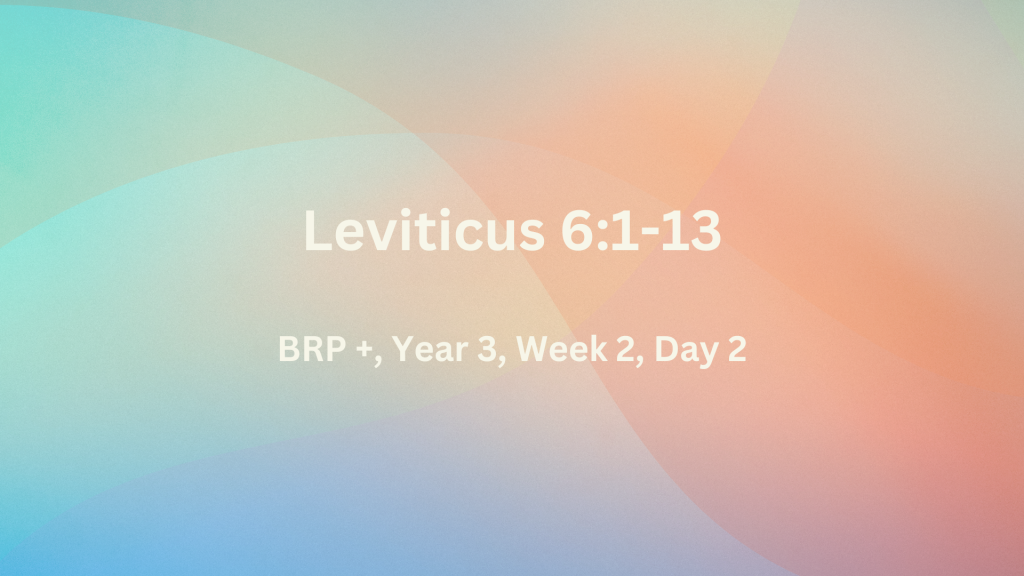Leviticus 6:1-13
Q.1. Under what circumstances might an Israelite offend? What restitution was required? How could guilt be appeased? – (Lev.6:1-7)
Jesus summed up the Law as – 29 … “The foremost is, ‘Hear, O Israel! The Lord our God is one Lord; 30 and you shall love the Lord your God with all your heart, and with all your soul, and with all your mind, and with all your strength.’ 31 The second is this, ‘You shall love your neighbour as yourself.’ There is no other commandment greater than these.” 32 The scribe said to Him, “Right, Teacher; You have truly stated that He is One, and there is no one else besides Him; 33 and to love Him with all the heart and with all the understanding and with all the strength, and to love one’s neighbour as himself, is much more than all burnt offerings and sacrifices (Mk.12:29-33). Love God and love others. Deceiving your companion, stealing, lying, or making false declarations against someone is the same as acting unfaithfully against the Lord (Lev.6:2-3). It brought guilt, requiring confession, forgiveness, and restitution, in order to be – forgiven for any one of the things which he may have done to incur guilt (Lev.6:7). Forgiveness could be granted by the Lord. However, firstly the offender had to make restitution to the one offended by – making restoration for it in full and adding to it one fifth more. He shall give it to the one to whom it belongs … (Lev.6:5). In addition, God was offended, and a guilt offering was required. The sacrifice was – a ram without defect from the flock (Lev.6:6). The overall cost of being reconciled to the offended party and to God would be a powerful deterrent against acting deceitfully in Israel.
Q.2. What was the law of the burnt offering? Why was the priest required to change his robes? When did offenders have access to God? – (Lev.6:8-13)
The burnt offering to make atonement for the sins of the people was entirely consumed by the fire – This is the law of the burnt offering: the burnt offering itself shall remain on the hearth on the altar all night until morning, and the fire on the altar is to be kept burning on it (Lev.6:9). It was totally offered to God as a peace offering for sin (Lev.6:12). The change of garments was required because it was a burnt offering for sin, and the priest was not to be defiled by it during his ministry on behalf of Israel (Lev.6:10-11). Moses was to command the priests that – fire shall be kept burning continually on the altar, it is not to go out (Lev.13 c.f. Lev.6:8). God was always available for the people to come to Him in repentance. This prefigured that an offender always has access to God since – Jesus … because He continues forever, holds His priesthood permanently. Therefore, He is able to save forever those who draw near to God through Him, since He always lives to make intercession for them (Heb.7:24-25).

